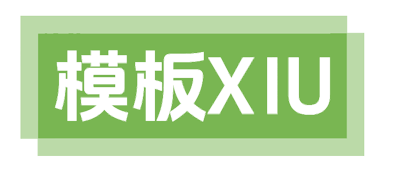关于”中国式教育的利与弊“的英语作文范文2篇,作文题目:Advantages and Disadvantages of Chinese Education。以下是关于中国式教育的利与弊的专业英语范文,每篇作文均为真题范文带翻译。
高分英语作文1:Advantages and Disadvantages of Chinese Education
With the development of technology, online education has become increasingly popular. It enables students to access educational resources and learn at their own pace without being limited by time and space. However, like all things, online education has its advantages and disadvantages.
On the one hand, online education provides convenience and flexibility. Students can learn anytime and anywhere as long as they have a computer and internet connection. This is especially beneficial for those who have busy schedules or live in remote areas without access to traditional educational institutions. Additionally, online education often offers a wide range of courses and resources, allowing students to explore various subjects that may not be available in their local schools.
On the other hand, online education lacks face-to-face interaction. In traditional claooms, students can directly interact with teachers and classmates, ask questions, and partite in group discussions. This direct interaction promotes active learning and the development of social skills. Moreover, online education requires students to be self-disciplined and motivated, as they need to manage their own time and study independently. Without the support and guidance of teachers and peers, some students may struggle to stay motivated and focused.
In conclusion, online education has both advantages and disadvantages. While it offers convenience and flexibility, it may hinder face-to-face interaction and require self-discipline. Therefore, it is important to find a balance between online education and traditional claoom learning for a comprehensive educational experience.
随着科技的发展,网络教育变得越来越受欢迎。它使学生能够在不受时间和空间限制的情况下访问教育资源并根据自己的节奏学习。然而,与所有事物一样,网络教育有其优点和缺点。
一方面,网络教育提供了便利和灵活性。学生只要有一台电脑和网络连接,就可以随时随地学习。这对于那些时间安排紧张或居住在偏远地区没有传统教育机构的人特别有利。此外,网络教育通常提供各种各样的课程和资源,使学生能够探索各种可能在当地学校无法获得的学科。
另一方面,网络教育缺乏面对面的互动。在传统教室中,学生可以直接与老师和同学互动,提问并参与小组讨论。这种直接互动促进了积极学习和社交技能的发展。此外,网络教育要求学生具有自律和动力,因为他们需要自己管理时间并独立学习。在没有老师和同伴的支持和指导下,一些学生可能很难保持动力和专注。
总之,网络教育有其优点和缺点。虽然它提供了便利性和灵活性,但可能阻碍面对面互动并需要自律。因此,找到在线教育和传统课堂学习之间的平衡对于获得全面的教育经验非常重要。
万能作文模板2:语文教育的利与弊
Chinese-style Education
Chinese-style education is often characterized by its emphasis on academic achievement, strict discipline, and memorization-based learning methods. It has been a controversial topic both domestically and internationally.
One notable feature of Chinese-style education is the rigorous curriculum. Students are required to study a wide range of subjects, including Chinese, math, English, physics, chemistry, and biology. The curriculum is designed to ensure that students acquire a solid foundation in various disciplines, which is considered important for their future academic pursuits and career development.
Another key aspect of Chinese-style education is the emphasis on strict discipline. Students are expected to obey rules and regulations, respect teachers and authority, and conform to social norms. This is believed to cultivate a sense of order, discipline, and moral values in students, although critics argue that it may restrict individual creativity and independence.
Furthermore, Chinese-style education often relies heavily on rote memorization. Students are required to memorize large amounts of information and reproduce it accurately in exams. This approach is believed to enhance students' memory and knowledge retention. However, it may also hinder critical thinking, problem-solving abilities, and creativity, as students are rarely encouraged to think independently or question the information they learn.
Despite its strengths and weaknesses, Chinese-style education has achieved remarkable academic success. Chinese students consistently rank among the top performers in international sments such as the Programme for International Student Assessment (PISA). They excel in subjects like math and science, which are considered crucial for technological advancement and economic competitiveness.
In recent years, there have been debates about the need to reform Chinese-style education. Some argue for a more holistic and student-centered approach that focuses on fostering critical thinking, creativity, and independent learning. It is believed that such reforms will better prepare students for the challenges of the 21st century, where problem-solving, innovation, and adaptability are highly valued.
In conclusion, Chinese-style education is characterized by its emphasis on academic achievement, strict discipline, and memorization-based learning methods. While it has produced outstanding academic results, it has also faced criticism for its potential negative impact on students' creativity and critical thinking skills. Efforts to reform and improve the education system are ongoing to ensure that Chinese students receive a well-rounded education that prepares them for the future.









Comments (0)